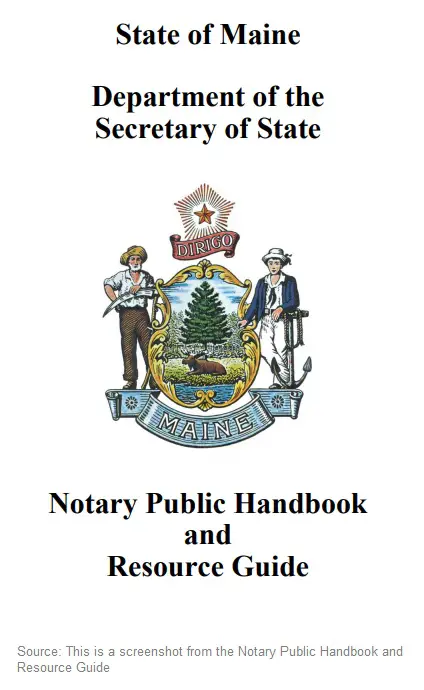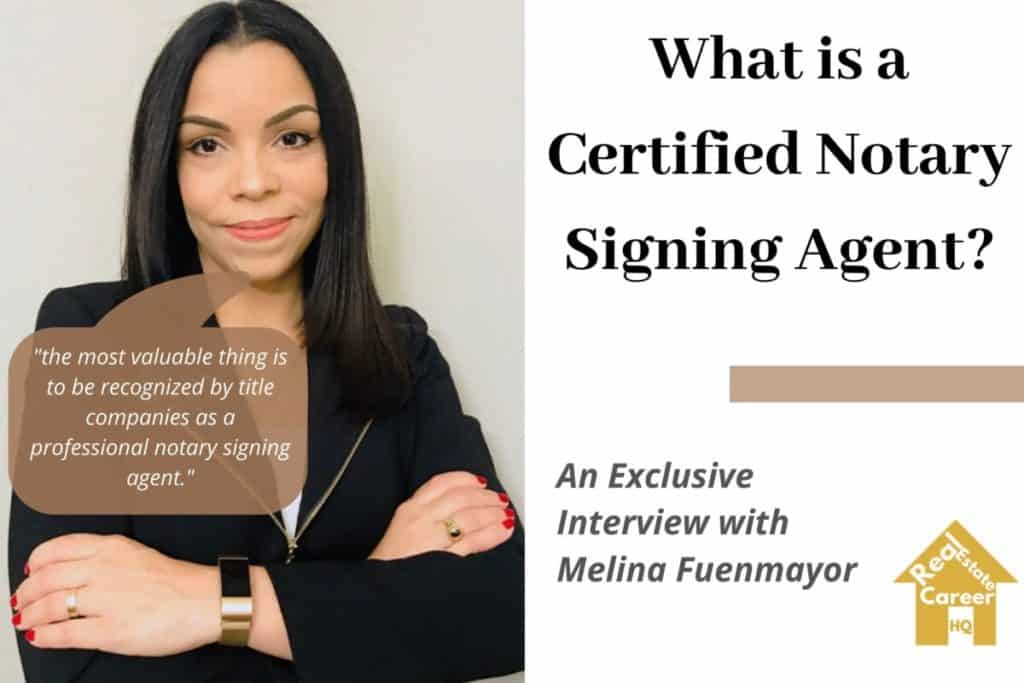(**) Disclosure: This post may contain affiliate links, meaning our company, JCHQ Publishing will get a commission if you decide to make a purchase through the links, but at no additional cost to you.
To become a notary loan signing agent in Maine, an applicant must
- Meet the state-eligibility requirement;
- Complete the Notary Public Application and pay the $50 fee to the Secretary of State
- Complete the Notarial Law and Practices Knowledge Exam
- Receive a Certificate of Qualification
- Take an oath of office before Dedimus Justice within 30 days
- Return the completed Certificate of Qualification to the Department of the Secretary of State within 45 days
- Purchase the notary seal and journal
- Keep up with notarial best practice
Although you could work on different types of documents, the loan signing business in the real estate market seems to be a lucrative niche.
So what does a loan signing agent do? When people are getting a mortgage to purchase a house, or they need to refinance their property, there will be loan documents involved. Your role as a notary loan signing agent is to walk through the set of loan documents with the borrower and witness them in signing the paperwork.
You would also need to verify the identity of the signers, place the notary stamp on the signed documents, then send them back to the signing services company or closing attorney.
But keep in mind that you should NOT be providing legal advice, and you cannot explain the terms of the loan documents to the borrower.
In this guide, you’ll find out the steps to become a notary in Maine, income updates, and FAQ about this profession.
But before we start, I want to give a brief disclaimer. This post is not intended as legal advice or state/federal notary public training. It is for general information only. Please check with your state to be sure that loan signing agents are utilized in the closing process. Always follow your state’s notary laws and best practices.
Would you like to learn how to make $75 to $200 per signing appointment? You must check out the Loan Signing System from Mark Wills. (**) This is one of the best training programs for loan signing agents. Many students have achieved remarkable business success after taking this program.
A Table Summary to Become a Notary Loan Signing Agent in Maine
| Age | Notary Course | Exam | Surety Bond | Term of Office | Application Fee |
|---|---|---|---|---|---|
| At least 18 | No | Yes. Questions in application | No | (7 years for Maine residents;) (4 years for New Hampshire resident) | $50 |
8 Steps to Become a Notary Loan Signing Agent in Maine

Step 1: Meet the state-eligibility requirement
- At least age 18 of age
- Demonstrate proficiency in the English
- Resident of Maine or New Hampshire resident who have a place of employment/practice in Maine
Step 2: Submit the application to the Secretary of State

The Maine Secretary of State is responsible for appointing and commissioning notaries. You need to fill out the “Application for a Notary Public Commission.”
There are five sections in the application, Section A to E.
Section A: Most of the questions in this section are pretty strict forward—for example, your name, business address, background info. It’s better to check that the name on the application will be the same as when you are notarizing documents.
Section B: This is where you write the “Notarial Law and Practices Knowledge Examination.” It consists of 19 questions, mostly in True/False or multiple-choice format. This is an open-book exam. A good way to prepare for it is by studying the Notary Public Handbook. I’ll talk more about it later in the post.

Section C: You must sign this part and swear in front of a notary public. This is an affirmation that the answers on the application are true and correct. Also, you have completed the exam by yourself. The notary public needs to sign and place a seal on it.
Section D: You need to bring it to the Municipal Clerk/ Registrar of Voters of your residence in Maine. Then they will sign and place the municipal seal on it.
Section E: The Secretary needs some reassurance that you will be a qualified notary. Therefore, they require a registered voter in Maine to sign this section. This serves as their appointment recommendation that you have the capability to perform the duties of a notary public.
After you have completed all the sections, you may send all the required document the Maine Secretary of State. There is a $50 filing fee. (Make check payable to Maine Secretary of State)
Their mailing address is: Secretary of State, Division of Corporations, UCC and Commissions, 101 State House Station, Augusta, ME 04333-0101.
Step 3: Take an oath of office

Once your application is approved, you will receive the Certificate of Qualification. Within 30 days, you must take an oath of office before a Dedimus Justice.
You may find a Dedimus Justice by contacting the Division of Corporations, UCC and Commissions at (207) 624-7752 or visit the Notary Public Directory.
Then you must return the completed Certificate of Qualification to the Secretary of State within 45 days of the date of the applicant’s appointment.
Step 4: Review the notary commission certificate

The Maine Secretary of State will send you the Notary Certificate of Commission. It is a good idea to review and make sure all the details on the commission are correct. (e.g., your name, city of residence, tern of commission).
Step 5: Get a notary seal

To start a notary signing business in Maine, you may use an embossing or ink seal. It is a helpful business tool that ensures you won’t leave out any required details. It indicates the signing agent as an impartial witness and helps to prevent fraudulent acts.
You may purchase the notary seal from office supplies store. Also, its design must comply with the regulatory rules. For example, it stamp must include
- Your name as appears on the commission certificate,
- The words “Notarial Public”, “Maine” or “ME” or the Great Seal of the State of Maine
Step 6: Maintain a notary journal

As a notary signing agent in Maine, it is good to maintain a journal of all the notarial acts. Keeping a good record of your notary acts is an essential part of good business practice. It could serve as proof that you have taken reasonable steps to identify the signer of a document. (It is mandatory for marriage performed)
If your journal is maintained in a physical format, you should have one bounded with pre-printed pages. You may find it at stationery, office supply stores, or through notary associations.
Whereas for a journal in an electronic format, it needs to be a permanent, tamper-evident. Make sure that it is complying with the rules of the Secretary of State.
For each entry of the notarial act, consider recording the following information such as:
- The date and time of the notarization;
- The type of notarial act;
- Name and address of the signer;
- A description of the document;
- The type of identification used;
- Amount of fees collected
Step 7: Familiarize with the Maine Notarial Laws
As a signing agent, it is important to understand the Maine notary laws and regulations. You must know what you can do and cannot do.
A good way to equip with the notarial knowledge is by reading the “Maine Notary Public Handbook and Resource Guide.”

This is a 42 pages PDF file that consists of five sections:
- Becoming a Notary Public
- Powers and Duties of Notaries Public
- Conflicts of Interest
- Authority of the Secretary of State
- Other Information and Resources
You can find the link of this guide in the reference section of the post.
Step 8: Keep up with notarial best practice
Continuing education is critical to being a notary signing agent. Rules and regulations would change over time. Also, there will be new technology to advance your business practice. A good way is to take high-quality courses from a trusted provider.
Advance your credential by becoming an NNA Certified Notary Signing Agent

The National Notary Association (NNA) is one of the largest associations and most recognizable for notaries. They provide regular updates, training and networking events to the members.
Getting the NNA Certified status can show to title and escrow companies that you are maintaining a high standard as a signing agent. Thus, strengthen their trust and confidence in your signing services.
>>Here is a review I wrote about the NNA Certified Notary Signing Agent Program<<
In there, you can find an exclusive interview I had with Melina Fuenmayor. She will share with you her thoughts in obtaining the certified credential.
Does Maine allow remote online notarization (RON)?

I like states that have the option for notaries to work digitally. Doing so could bring you great convenience to streamline your notary practice.
Remote online notarization allows you not to be physically present with the signer. Instead, you would verify their the signer’s identity through video and audio conference.
At the time I’m writing the post, there are emergency rules imposed which allows remote notarization in Maine. However, this could be a temporary measure. Whether they would revert to in-person notarization afterward is unknown yet. Therefore, you should check with the Office of the Secretary of State.
How to become a mobile notary in Maine?
Some signers cannot travel to your office in signing the documents, and they do not have the technology to perform the remote notarization. In such a situation, there would be a demand for a mobile notary. In short, a mobile notary is merely a notary that travels around in meeting signers.
To become a mobile notary in Maine, you must:
- Register with the Secretary of State as a notary. This is basically the same notary commission certificate, as discussed earlier. You don’t need to get a new one.
- Have ease of transportation. It is better to have your own car so that you could conveniently drive between appointments.
- Setup essential equipment: A mobile printer and an approved electronic notarization platform allow you to work on the documents whenever and wherever. You may check out our resource page for amazingly helpful tools that could streamline your business.
How much do notary loan signing agents make in Maine?
The average annual income of Loan Signing Agent in Maine is $42,178. The income typically ranges between $27,552 to $56,023. Top earning loan signing agents in Maine are making over $83,576.
As mentioned earlier, you could work on different documents, but the loan signing in the real estate market could be a lucrative niche.
Top 10 Highest Paying Cities for Loan Signing Agents in Maine
| City | Annual Salary |
|---|---|
| Augusta | $52,782 |
| Sanford | $52,432 |
| Saco | $49,192 |
| Biddeford | $49,134 |
| South Portland | $46,115 |
| Bangor | $46,081 |
| Portland | $45,878 |
| Auburn | $45,803 |
| Lewiston | $44,308 |
| Waterville | $43,202 |
source: ZipRecruiter (March 12, 2022)
A real life story of a successful notary public and loan signing agent

What’s a better way to learn about the business than learning from someone actually working in it! Here is an exclusive interview I conducted with Luisa Cook. She is a successful Certified Notary Public and Loan Signing Agent.
In there, she shared her journey and business strategy in running a notary and signing business. I’m sure this could help you to understand more about the notary career.
Is there demand for notary loan signing agent in Maine?
As long as people are obtaining mortgages or refinancing their homes, there would be a demand for notary loan signing agents.
All originated mortgages in Maine
| YEAR | RECORDS |
|---|---|
| 2017 | 31,503 |
| 2016 | 33,761 |
| 2015 | 29,602 |
| 2014 | 25,962 |
| 2013 | 37,720 |
| 2012 | 41,515 |
| 2011 | 32,181 |
| 2010 | 37,475 |
| 2009 | 45,092 |
| 2008 | 34,638 |
| 2007 | 44,333 |
Source: Consumer Financial Protection Bureau – Home Mortgage Disclosure Act (HMDA) (Sept 05, 2020)
Some states are “Attorney States,” which means only attorneys can coordinate the closing paperwork of a real estate. Whereas, others are “Escrow States” where escrow companies would handle the mortgage closing.
According to the First American Title, Maine is an “Attorney State.”
Here is a post covering the differences between escrow states and attorney states and its impact on the loan signing business. You will also find a case study where a signing agent went from barely making end needs to earning over $10,000/month even in an attorney state.
If you want to succeed in the loan signing industry, you must check out this loan system training program. If you review the testimonials of his students, you’ll be amazed at how the notary career changes their life after they learned from Mark Wills. (**)
How much does it cost to become a notary loan signing agent in Maine?

It costs approximately $82 to become a notary in Maine.
Here’s a breakdown of the costs to start a notary signing business
| Notary Application Fee | $50 |
| Notary Seal | $17 |
| Journal | $15 |
There could be other expenses involved, travel expenses, car maintenance, auto insurance, remote notary technology, laptop and other business supplies.
Can a felon be a notary in Maine?

Having a conviction for a felony may impact the application to become a notary in Maine. The Secretary of State needs to make sure that you are a person with credibility, truthfulness, and integrity to fulfill the responsibilities of the position.
The notary application has the following questions:
If you have ever been or are now currently a notary public in another state or jurisdiction, has your commission ever been revoked or suspended for official misconduct during the last 5 years?
Have you had any criminal convictions in the last 10 years? (Do not include traffic violations)
Quote from Application for a Notary Public Commission for a Maine Resident
If you answer “Yes” to any of the above, you would need to provide further explanation.
However, having a felony does not necessarily mean your application will automatically be declined. It depends on the severity and nature of the conviction. The Maine Secretary of State would review it on a case-by-case basis.
If the applicant has been convicted of a crime for which imprisonment may be a penalty, the applicant is ineligible for appointment for the following reasons: awaiting sentencing, free pending the appeal of the conviction, incarcerated or under probation or parole.
Conviction of certain crimes involving dishonesty renders a person ineligible for 10 years following release, the termination of probation or if the applicant was not incarcerated, after the date of the conviction.
Additionally, if the applicant has been or is now currently a Notary Public in another state or jurisdiction and the applicant’s commission has been suspended or revoked for official misconduct during the 5 year period preceding the date of application, the applicant is not eligible for appointment.
Quote from Notary Public Handbook and Resource Guide
How long does it take to become a notary in Maine?
It can take 4 to 6 to become a notary in Maine. After the Secretary of State receives your application and all the required documents, they will send you a Certificate of Qualification. You must take an oath of office within 30 days, and send it back to the Secretary of State within 45 days.
Once everything is in good order, the Office will send you the notary certificate. Then you could purchase the notary seal and journal.
How to renew notary commission in Maine?

If you are a resident of Maine, you will renew the notary commission every seven years. But if you are a resident of New Hampshire, you need to renew every four year.
The renewal needs to done through their online system, Total Notary Solution.
Besides the online application, in there, you will need to write the Notary Public Law and Practices Knowledge exam. It consists of 30 questions relating to Maine notarial laws and practices.
The good news is even if you answer the question incorrectly, the system allows you to adjust your response. It simply won’t allow you to move to the next question until you provide a correct response. There is a renewal fee of $50, which can be paid by a credit card. (i.e, VISA, Mastercard, Discover)
The rest of the steps are similar as you were applying for the initial application.
- Bring the application to clerk or registrar of voters;
- Sign the application before a notary public
- Taking an oath of office in front of Dedimus Justice
- Return the renewal application and the Certificate of Qualification to the Maine Secretary of State
You can start the renewal process within 45 days that your current commission will expire. But to avoid an interrupted business period, don’t wait till your current notary commission is expired.
Can I notarize for a family member in Maine?

You must not notarize any documents where you have any financial or beneficial interest in the transaction. Therefore, notarizing a document for any family member could call into question, and such practice should be avoided.
A notary public may not perform any notarial act for any person if that person is the notary public’s spouse, parent, sibling, child, spouse’s parent, spouse’s sibling, spouse’s child or child’s spouse, except that a notary public may solemnize the marriage of the notary public’s parent, sibling, child, spouse’s parent, spouse’s sibling or spouse’s child.
Quote from Maine Legislature: Title 4, Chapter 19, Section 954-A, Conflict of Interest
I have more questions about being a notary public in Maine, where could I obtain more details?
You may contact the Maine Secretary of State:
- Telephone Inquiries: (207) 624-7752
- Email Inquiries: CEC.Notaries@Maine.gov
Disclaimer: The information in this post is for general information only, and not intend to provide any advice. They are subjected to change without any notice, and not guaranteed to be error-free. Some of the posts on this site may contain views and opinions from individual not related to JCHQ Publishing. They do not necessarily reflect our view or position.
(**) Affiliate Disclosure: Please note that some of the links above are affiliate links, and at no additional cost to you. Our company, JCHQ Publishing will earn a commission if you decide to make a purchase after clicking on the link. Please understand that we include them based on our experience or the research on these companies or products, and we recommend them because they are helpful and useful, not because of the small commissions we make if you decide to buy something through the links. Please do not spend any money on these products unless you feel you need them or that they will help you achieve your goals.
Reference:
- First American Title- Your Guide to Real Estate Customs by State (source)
- Maine Secretary of State – Notaries & Dedimus Justice (source)
- Salary.com – Notary Signing Agent Salary in Maine (source)
- ZipRecruiter – Loan Signing Agent Salary in Maine (source)
- Consumer Financial Protection Bureau – Home Mortgage Disclosure Act (HMDA) (source)

